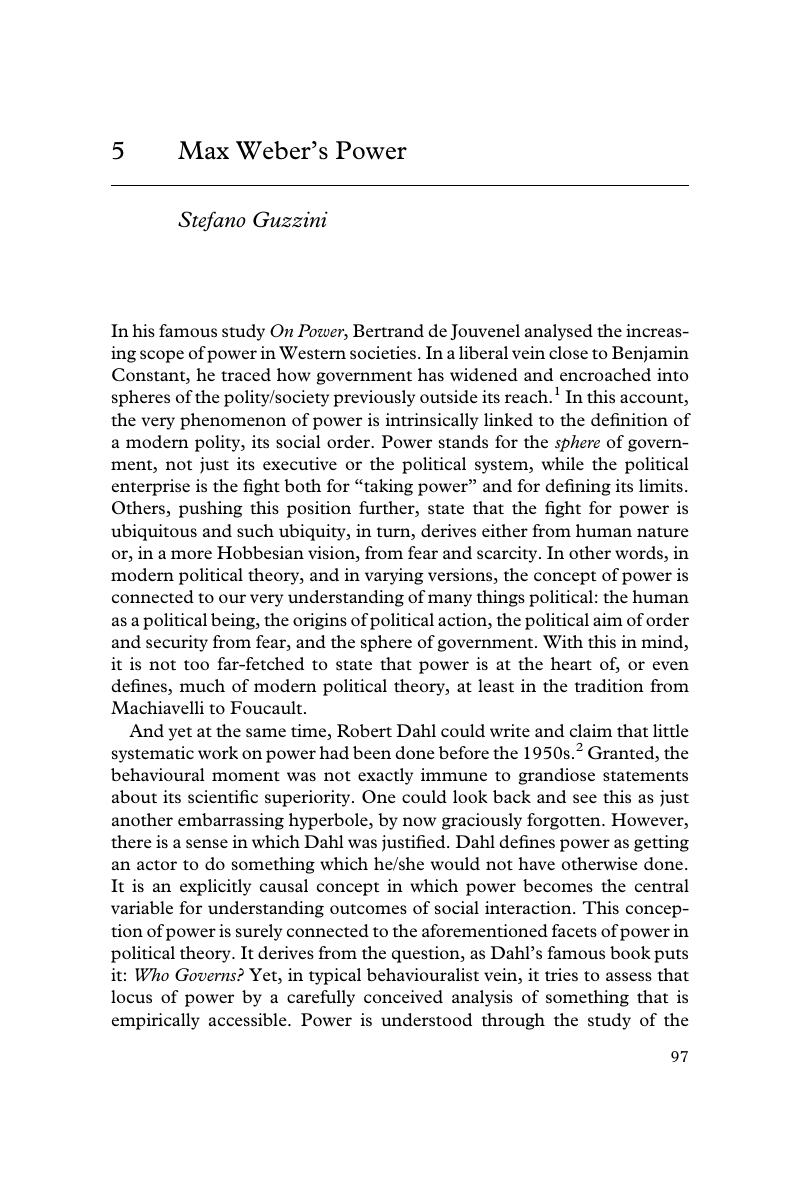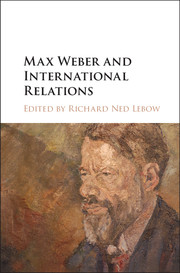Book contents
- Max Weber and International Relations
- Max Weber and International Relations
- Copyright page
- Contents
- Contributors
- 1 Introduction
- 2 Max Weber and International Relations
- 3 Weber’s Search for Knowledge
- 4 The Production of Facts: Ideal-Typification and the Preservation of Politics
- 5 Max Weber’s Power
- 6 International Organizations and Bureaucratic Modernity
- 7 Decolonizing Weber: The Eurocentrism of Weber’s IR and Historical Sociology
- 8 Weber’s Tragic Legacy
- Index
- References
5 - Max Weber’s Power
Published online by Cambridge University Press: 25 October 2017
- Max Weber and International Relations
- Max Weber and International Relations
- Copyright page
- Contents
- Contributors
- 1 Introduction
- 2 Max Weber and International Relations
- 3 Weber’s Search for Knowledge
- 4 The Production of Facts: Ideal-Typification and the Preservation of Politics
- 5 Max Weber’s Power
- 6 International Organizations and Bureaucratic Modernity
- 7 Decolonizing Weber: The Eurocentrism of Weber’s IR and Historical Sociology
- 8 Weber’s Tragic Legacy
- Index
- References
Summary

- Type
- Chapter
- Information
- Max Weber and International Relations , pp. 97 - 118Publisher: Cambridge University PressPrint publication year: 2017
References
- 5
- Cited by



